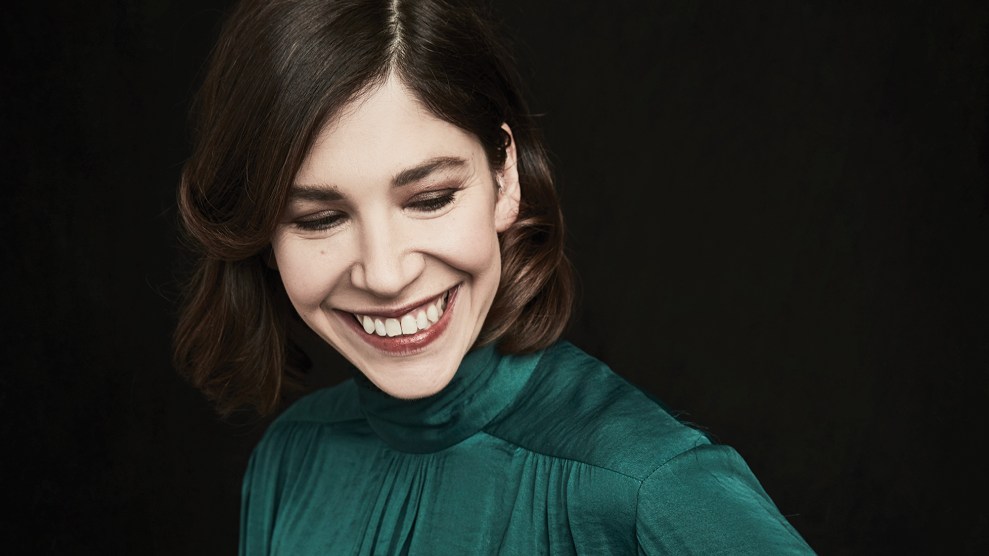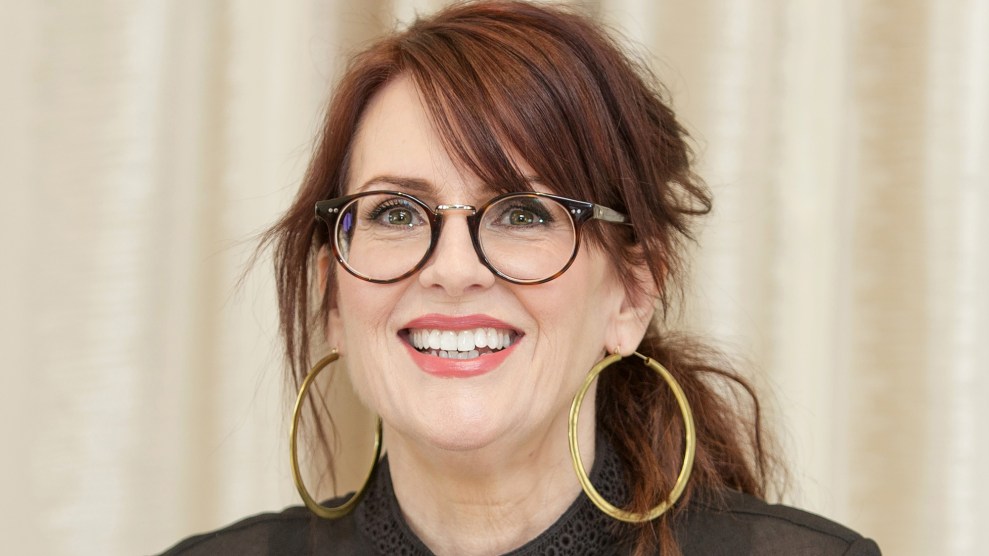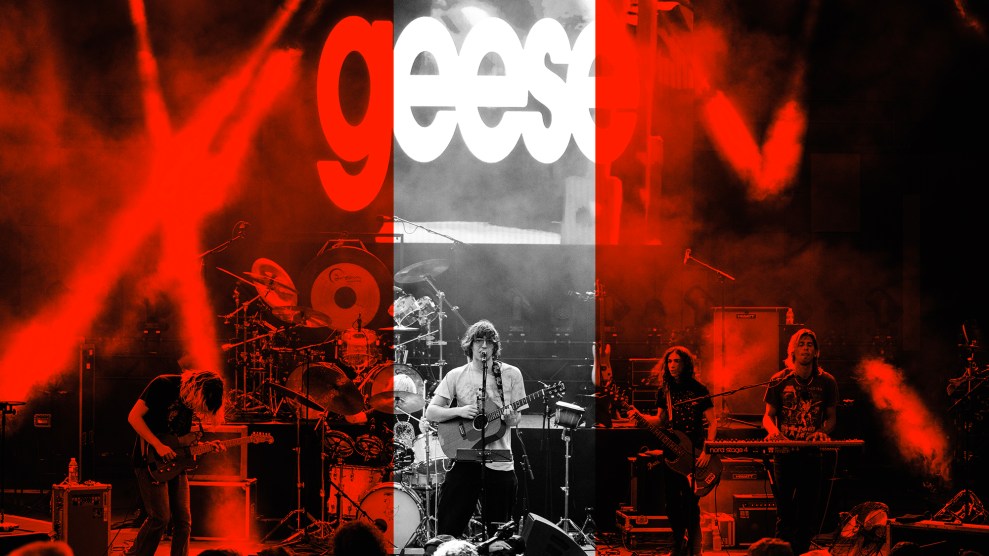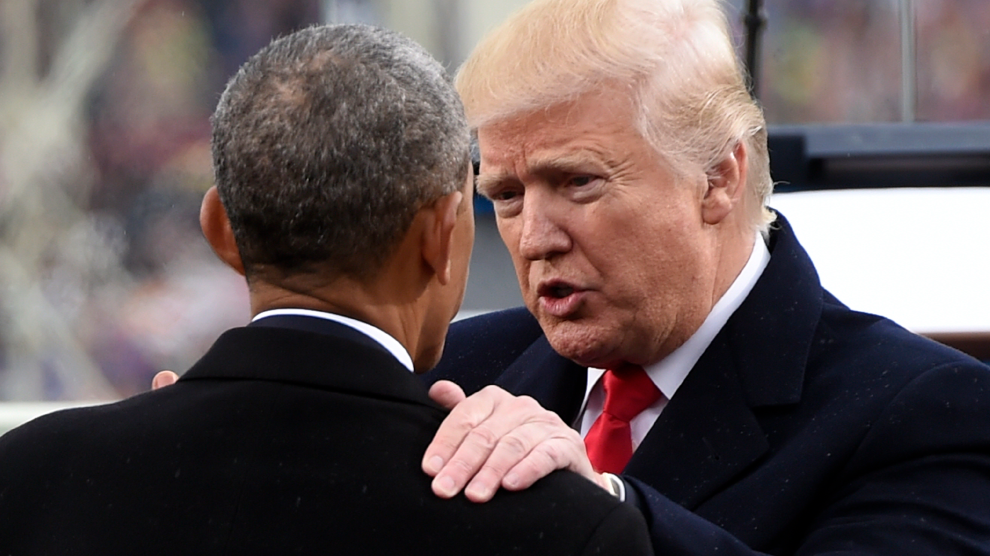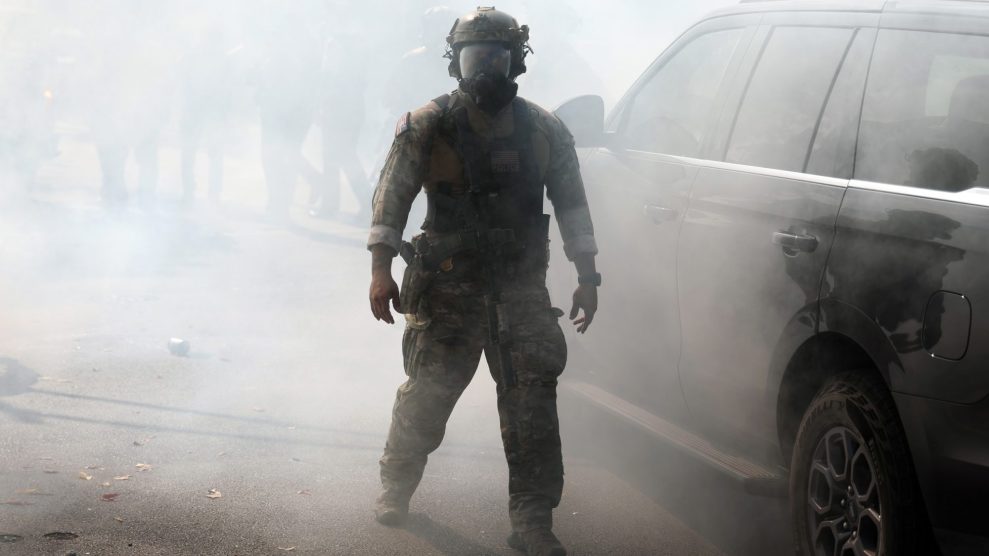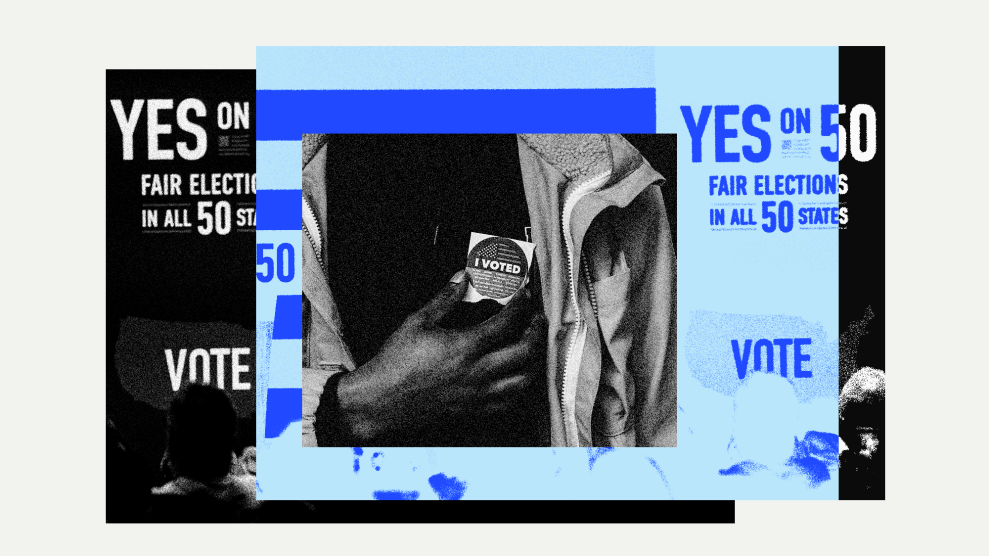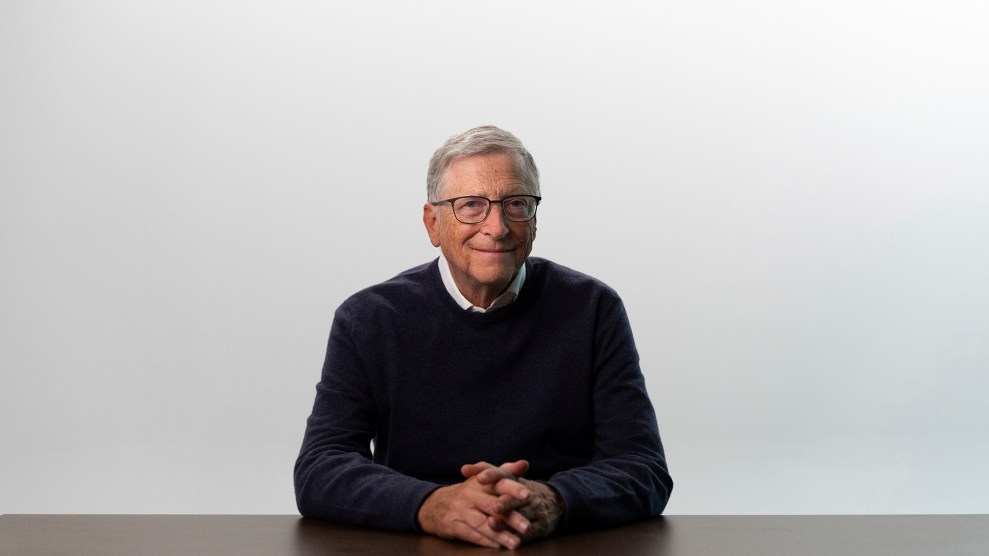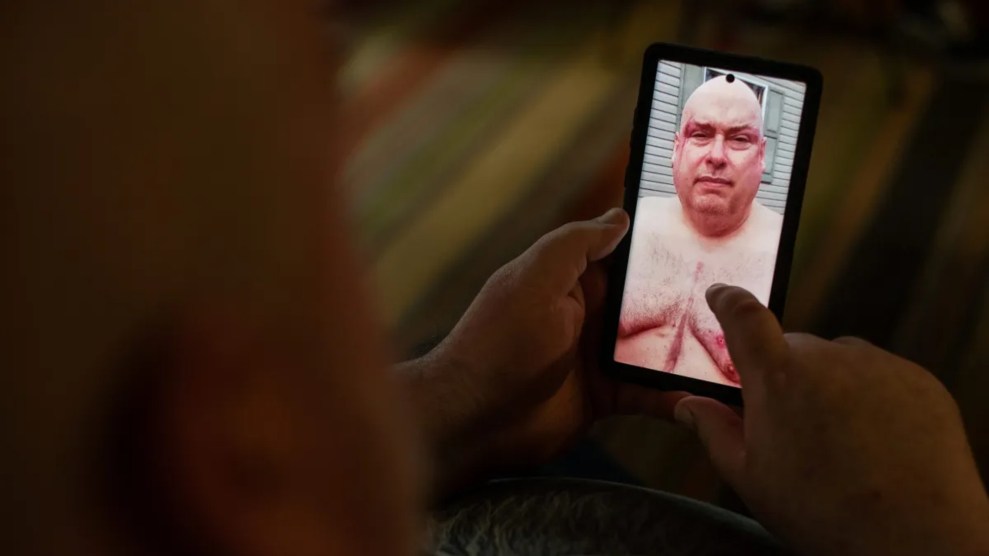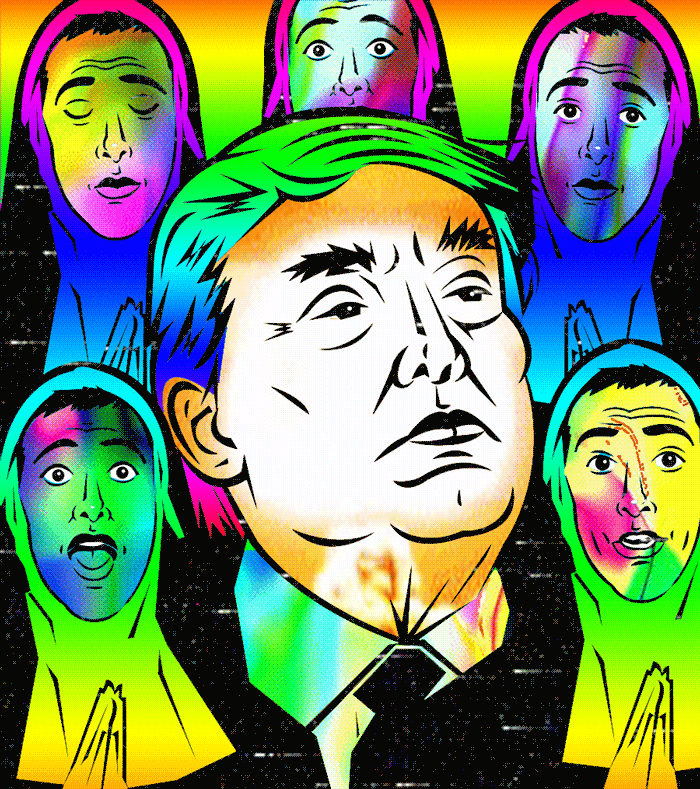
Donald Trump may be a disaster for America, but he’s a click machine for singer-satirist Randy Rainbow, a 36-year-old New Yorker who has soared to social-media fame with a series of hilarious musical videos that roast the president and his minions. “Every time something happens with this fakakta administration, there’s more material,” says Rainbow—his real name, a fact almost too good to be true given that his eyebrow-arching cabaret shtick is, like him, refreshingly gay. “Braggadocious,” a 2016 video that has Rainbow moderating the first Trump-Clinton debate, racked up nearly 32 million views on Facebook. “Desperate Cheeto,” set to the 2017 megahit “Despacito,” clocked more than 12 million. Rainbow borrowed from The Sound of Music (and donned a nun’s habit) for “How Do You Solve a Problem Like Korea?” And he was inspired by Hamilton—and Donald Trump Jr.’s meeting with a Kremlin-linked lawyer—to sing about the Russians in “The Room Where It Happened.” Rainbow still works alone in his tiny flat in Astoria, Queens, but his growing acclaim has led to a flurry of live performances and fresh opportunities, including potential TV projects. “Hopefully I work well with others,” he jokes.
Randy Rainbow: I’m getting over a cold, so forgive me if I sound like Bea Arthur.
Mother Jones: She’s a big icon of mine, so we’re fine. Tell me about your space.
RR: It’s a studio apartment—it’s very, very small. It’s insane! Every time the bat signal goes up, I have to set up my green screen and lights and camera and you really can’t turn around in there.
MJ: What triggers your bat signal?
RR: I try to get a video up at least every other week no matter what. But I can check Twitter and see what’s trending and what everyone’s requesting.
MJ: You get requests?
RR: Plenty. Actually, a couple of people asked me to do “How Do You Solve a Problem Like Korea?” That was a little on the nose even for me.
MJ: The obviousness of the pun?
RR: You have to be careful with parodies. I don’t like when they’re too obvious, ’cause it can be a little cheap. But something like that is just so perfect, I do my best to make it work.
MJ: I’m curious to hear how you describe what you do.
RR: My primary goal is to take this horrendous stuff that’s happening—this aggravating, frustrating, day-to-day mess—and make people laugh.
MJ: Alec Baldwin frets that he’s giving Trump too much attention, but he also knows his SNL impersonations bring people joy. Your take?
RR: Comedy is a great unifier. I hear from people every day from both sides saying, “We don’t have the same beliefs, and, you know, I hate gay people and I hate white people and I hate black people and I’m an awful person—but I laughed at your video!”
MJ: Do you get a lot of homophobia?
RR: It’s surprising how much hate mail I don’t get. I get the basic name-calling shit. With every video comes a few—their profile picture is the American flag with a bald eagle and a gun. But luckily (because I’m very thin-skinned) nobody has targeted me too much.
MJ: Lots of entertainers are cashing in on the Trump bump. How’s it treating you?
RR: This last year has changed my life. My YouTube channel is making more money than before, and this translates to other gigs and television appearances. I’m about to kick off a tour with Live Nation. I was onstage since I was a kid doing musical theater, but making these videos is so isolating—there’s nobody there but me and my cat. Then suddenly I’m flying to places I’ve never been and selling out houses. When everyone knows the words and there’s a line out the door—that feels crazy! To go from the isolation of my little apartment to being stopped on the street, I guess, is the most fun part. I don’t think there’s a childhood hero I haven’t heard from yet.
MJ: Do tell.
RR: The list is crazy. I’ve gotten to work with the cast of Will & Grace. Stephen Sondheim sends me letters and I’ve had drinks with him. Dick Van Dyke! Rosie O’Donnell is a friend now.
MJ: Amazing. So, I understand you were from Florida originally?
RR: New York, and then raised in South Florida. My family is very New Yorker.
MJ: Pretty liberal, then?
RR: Extremely liberal, extremely open. Lots of musical people. Even the ones who didn’t have professional careers are very funny—my grandmother was like Joan Rivers. They sparked my interest in comedy and in musical theater.
MJ: Do you sense a growing mainstream acceptance of gay entertainers?
RR: I’m a little biased. I happen to be one of the Out100 this year. There’s still work to be done, but I think we’ve come extremely far, especially in the entertainment industry. People come out and it’s like, “Okay, great. What’s next?”
MJ: Yeah, people don’t bat an eyelid. Sort of gives you space to, you know, push out the gay language of theater that’s always been right under the surface. That’s what attracted me to your work in the first place.
RR: I have parents coming to me saying their 10- and 11-year-olds watch me, and they’re very appreciative that I’m just being myself—unabashedly! I’m at a place right now that I’m not even thinking about, “Oh, is this too gay? Like, should I not wear lipstick in this video?” My mother and grandmother can have credit for that.
MJ: When did you realize your work would be a big hit in the Trump era?
RR: I always knew. This is the payoff of what I’ve been working toward for six or seven years. I’m really good with cranky old racist white men. The first big viral success was called “Randy Rainbow Is Dating Mel Gibson.” I take the thing everyone is most irate about and try to make it easier for people to deal with, whether that means the horror going on now or something as silly as Mel Gibson or Chick-fil-A. I always say, “As long as there are assholes, I will be there,” because there’s always someone doing something that will require comedy.
MJ: Well, stick around. We’ll need you for President Ivanka Trump.
RR: I know! I better recover from this cold.

